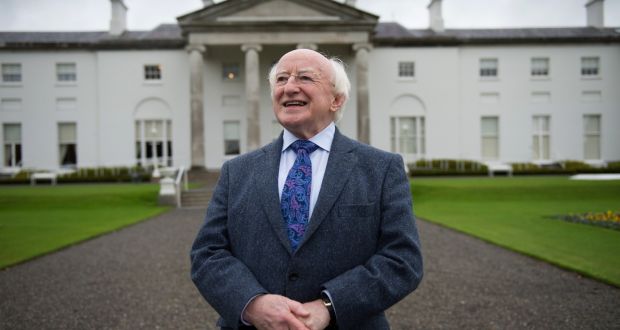A team of Trinity ecologists are to conduct a year-long biodiversity audit of Áras an Uachtaráin and its grounds in the Phoenix Park.
The Office of Public Works (OPW) reached out to the Trinity team to begin this new green initiative after President Michael D Higgins asked the office to commission the study.
Over the next year, the team will quantify both habitat and species across the 130 acre site, which contains both formal gardens, certified organic kitchen gardens, and areas that are managed for biodiversity. The Phoenix Park deer are excluded from the Áras, making it a unique biological site within the Park.
Trinity biodiversity specialist Prof Jane Stout will lead the project with a team of taxonomic experts.
In a press statement, Stout said: “It’s a great honour and a real privilege to lead this project and to work with such an incredible team. Urban nature is important for so many reasons, and the first step to managing it effectively is to conduct an audit to determine what is there.”
“We’re all excited to see what lives on the site and to make recommendations for future biodiversity-friendly initiatives”, she said.
At the first National Biodiversity Conference in early 2019, the president spoke about the “profound challenges” of threats to the natural environment, and said that reversing biodiversity loss would require all of us to be leaders within our own spheres of influence.
Margaret Gormley, the chief park superintendent at the OPW, added in a press statement that “this research, which will be made public at the end of the audit, will boost our knowledge and support our sustainable and environmentally friendly management practices now and in the future.”
In his keynote address at the Athens Democracy Forum last month, Higgins called for a new “ecological-social paradigm”, and told the audience in the Greek capital that “a new paradigm of economy is now urgently required, one that might steer us back towards what will be a long but essential road of societal and ecological reparation”.
In September The University Times reported that Trinity is considering the implementation of a new integrated five-year master’s degree in environmental engineering, as part of the new Engineering, Environment and Emerging Technologies (E3) programme.
Vice-Provost Jurgen Barkhoff said that the new master’s degree would be brought to the Undergraduate Studies Committee in the near future and that the College is currently working on a proposal for the new course.







